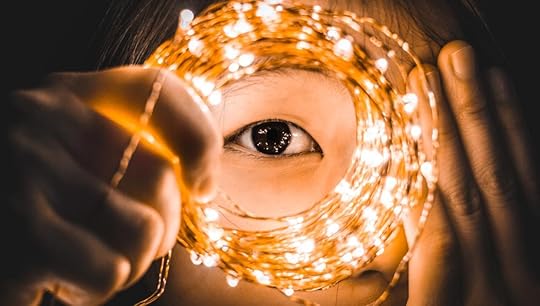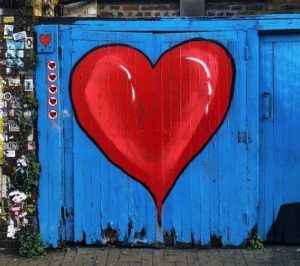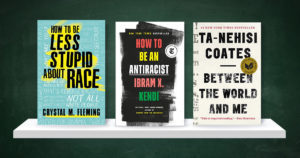Ruth King's Blog, page 5
November 12, 2021
A Homecoming with Nature
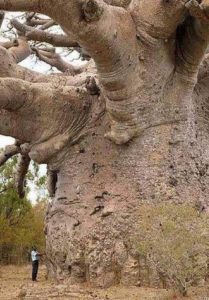 Being a Black woman, and a human professionally trained in psychological and social systems, I recognize the earth body as kin – as a “body of color.” It’s not a stretch for me to see how global domination, exploitation, and neglect of the earth is not so different than the systemic cruelty, oppression, and marginalization experienced by bodies of color throughout the world. Our current climate crisis, racism, and the COVID-19 pandemic – to name a few - have roots in social greed, self-interest, and disrespect of the fact of our belonging, crippling Black, dark, and poor bodies and communities more exponentially.
Being a Black woman, and a human professionally trained in psychological and social systems, I recognize the earth body as kin – as a “body of color.” It’s not a stretch for me to see how global domination, exploitation, and neglect of the earth is not so different than the systemic cruelty, oppression, and marginalization experienced by bodies of color throughout the world. Our current climate crisis, racism, and the COVID-19 pandemic – to name a few - have roots in social greed, self-interest, and disrespect of the fact of our belonging, crippling Black, dark, and poor bodies and communities more exponentially.
If you have financial resources, you may be able to afford to distract yourself with comforts for a while, but we all breath the same air, depend on the same water and sun, and expect – often in righteous indignation or ignorance - the earth body and the work of dark bodies to sustain us. The harm to the earth body and to dark bodies reveal what we have forgotten and must now remember – that all bodies belong here. The raging horrors at this time are cries for collective care over self-interest. Just as we can’t live outside of our bodies, we can’t exist outside of nature, nor can we escape the impact of our coexistence and our choices.
We are each other's harvest,
We are each other's business,
We are each other's magnitude and bond.
—Gwendolyn Brooks
One of our challenges as humans is to soften into a recognition and appreciation of the earth body and our body as one in the same, mirrors of belonging. As we walk through the minefields of social injustice and racial hardship, making time for a homecoming with the natural world can fill our nervous systems with ease and joy and help us remember that we belong here, and that diversity can coexist in harmony. We might begin with a few mirror reflections. For example, when you question your worth and beauty, it can feel nourishing to admire in intricate detail an unusual flower. See yourself in this flower. Imagine yourself becoming flower—soft, unique, fragrant, original—in the flower of your admiration. Notice and resist the impulse to sever the flower from its roots. Rest and savor this moment.
If you feel ungrounded, take some time to be near a mature tree. Notice its full trunk and deep strong roots. Ask the tree any questions that come to mind, for example: How do you just stand there through all the earthly destruction and racial horrors of life? Teach me how to survive without hiding or hurting. Teach me how to stand firmly and gracefully. Imagine yourself being the tree—old, wise, solid, and grounded, knowing you have a right to exist. Let yourself feel the physical power of this natural expression – rest, ground, and open. Imagine If I were a tree, how would I respond to my question? And ask: How do I protect you, dear elder, from harm? If you feel lifeless and in need of energy to take care of yourself, consider wrapping yourself in a blanket, taking a nap, or falling asleep in the warm sun, soaking up its rays. If the warm sun is not available, imagine a radiant sun beaming down on your body, a beautiful sunset, or a hearth fire. Invite your imagination to allow in more light and become light itself. Feel the generous radiance of light and offer thanks.
If you are hurting or enraged because you are in a situation or a relationship that you can’t influence or mend, invite the earth to join you. Plant a flower or tree as a dedication to the person or situation that feels unbearable. Attend to the flower or tree—and talk to it as if it were a dear one.
If you need to grieve but your tears won’t flow, take this need to a larger body of water—the ocean, a lake or river, and give it over. Your bathtub will also do as well as your imagination. Ask the larger body of water to hold your grief. Then ask the water what grieves her and what's needed for our humanity. Listen with your full body then thank the waters of life for making life possible.
If you feel overwhelmed, caged, or frustrated, find your way to fresh air and open space. I will often say to learners: Put a bit of space around your worries and rest! This requires a shift in perspective – to imagine that we are space. There is always more sky than what appears in the sky; more space in a room that the objects in the room. This is true of our bodies, minds, and hearts – all experiences are experienced within space. Think about it: We all exist within a spacious and skinless body of awareness. Surrender to space and its inherent vastness and goodness. Rest in your exhales and thank space for helping you keep the objects of life in perspective.
Our bodies are here to mirror our membership in each other’s lives on this planet. To care for our bodies is to care for the earth body and all bodies. To nurture our bodies with nature makes life more textured and intimate. It heightens our curiosity and supports a reverence for life - a recognition of our kinship, codependence, and instinct for care. And care we must!
When we are ever intimate with the tensions between personal and collective suffering, we experience liberation, enlightened to who we are as human beings. A true spiritual and social justice brings light, or enlightenment, to the truth of our intimacy with each other. If only one person is suffering or one indigenous place in the world is being lost, we must act to save this home we all live in. - Zenju Earthlyn Manuel, Sanctuary
The post A Homecoming with Nature appeared first on RuthKing.net.
December 12, 2020
Black & Buddhist and My Grandmother’s Hands: A conversation with Ayo Yetunde and Resmaa Menakem
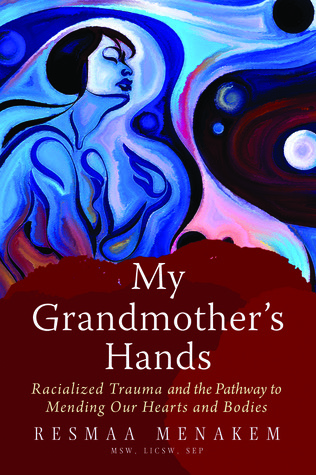
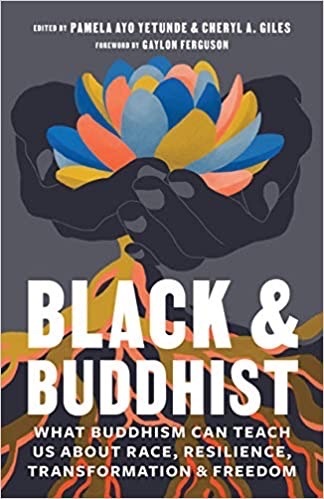
Lions Roar Magazine features Pamela Ayo Yetunde, Community Dharma Leader and co-editor of the newly released anthology Black & Buddhist: What Buddhism can teach us about Race, Resilience, Transformation, and Freedom, speaks with psychotherapist Resmaa Menakem about his New York Times bestselling book My Grandmother’s Hands: Racialized Trauma and a Pathway to Mending Our Hearts and Bodies.
Click below to enjoy this amazing discussion!
My Grandmother’s Hands: Resmaa Menakem and Pamela Ayo Yetunde in Conversation
The post Black & Buddhist and My Grandmother’s Hands: A conversation with Ayo Yetunde and Resmaa Menakem appeared first on RuthKing.net.
November 1, 2020
The Power of Equanimity
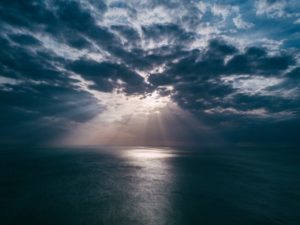 At this momentous time in our nation’s history, “equanimity” probably does not describe what most of us are striving for right now. On the contrary, many of us are striving for justice, for healing—some of us, for survival. Is the peace and balance of meditation taking us in the wrong direction?
At this momentous time in our nation’s history, “equanimity” probably does not describe what most of us are striving for right now. On the contrary, many of us are striving for justice, for healing—some of us, for survival. Is the peace and balance of meditation taking us in the wrong direction?
Not in my understanding. In my experience, equanimity has great power—especially at times like these.
When I reflect on the power of equanimity, I think of those times when we see beyond judgment and self-interest and realize that we are choosing instead of reacting; those times when the pain of injustice is held in our hearts, while the mind is still, steady, and clear; those times when we make small choices that show great care and influence social balance. This is the power of equanimity.
We might begin to understand this power using nature as a metaphor. For example, equanimity can feel internally like a great mountain, with the mind solid and stable, undisturbed by the changing seasons. Or it can be like the ocean, with the mind vast, deep, and immeasurable, undisturbed by whatever swims, floats, or is housed in its waters. Equanimity can be like a strong fire — roaring, engulfing, and transmuting, undisturbed by whatever is thrown into it. Or like immense space — open, allowing, and receiving, undisturbed by the objects that arise and pass away.
As we walk through the coming week, we may want to call on the strength of these elemental inner resources for balance and equipoise. For example, there are times when we will need to stand our ground, strong like a mountain, and observe what emerges, or we may need to add a spark of fiery truth to a situation. Other times, we may need to open and allow more space around the tightness of our worries, or let go and be held by an ocean of love.
In all of these forms, equanimity is awareness so spacious that whatever arises in our mind and heart, whether agreeable or disagreeable, is small and incidental compared to awareness itself. In other words, when we are equanimous, nothing is left out of heart’s view.
Equanimity enables us to know the energetic movements of mind without reactivity. It is an experience of grounded presence in the midst of extremes, when the mind is steady and responsive, and when we can say to ourselves, “This moment is like this, and it doesn’t have to be different right now. I can allow what is here and offer what is needed.”
Imagine the power of this inner resource as we engage with the messy world in which we live.
And yet, equanimity is not something we can force. It’s an experience we come to recognize and nurture through mindfulness practice. Fortunately, even outside of formal meditation, you can orient the heart toward that experience simply by bringing to mind intentions of equanimity. I will give several examples here. My invitation to you is to find two or three that resonate with you, and try them at different times in your day. As you say them to yourself, take time to relax and linger in the goodwill motivating these phrases:
May I bear witness to things just as they are.
May I remain peaceful and let go of fixation.
May I offer care without hesitation, knowing I may be met with gratitude, anger, or resistance.
May I offer care, knowing I don’t control the course of life, suffering, or death.
May I find the inner resources to genuinely contribute where needed.
May I see my limits with compassion, just as I see the limits of others.
I care about the pain of others, yet I cannot control it.
I care for all beings, but my way is not the only way. All beings have their own journey, and I have mine.
May I be free from preference and prejudice.
May I see the world with quiet eyes.
Excerpt from Mindful of Race: Transforming Racism from the Inside Out - Published by Ten Percent Happier App, October 29, 2020
The post The Power of Equanimity appeared first on RuthKing.net.
October 15, 2020
Cycles of Misperception
Photo courtesy of Nong Vang on Unsplash
Enjoy this excerpt from Mindful of Race - Understanding the Cycles of Misperception, published by Garrison Institute, 2018
The post Cycles of Misperception appeared first on RuthKing.net.
October 6, 2020
What Compassion Looks Like Today
In 2015, I gave a talk to a predominantly white Buddhist community. It was a heartfelt evening in which we explored the epidemic of violence that was infesting many of our communities near and far, and we discussed how to stay intimately present with an open heart.
After a thirty-minute silent meditation, I had everyone state their names. Then, after everyone finished, I offered a few names of people who were present in my mind but no longer with us: Tamir Rice, Michael Brown, Eric Garner, and others.
I then said to the group, “These are just a few of the names of unarmed African American men, women, and children killed by police over the past several months, and I’m Ruth King, their Mother.”
Today, of course, I would add the names of Breonna Taylor, George Floyd, Ahmaud Arbery, and so many names of Black dear ones and allies whose lives have been cut short by police brutality, domestic terrorism, and systemic racism.
Undoubtedly, one loss would be too many. And perhaps some of you reading these words have had experiences of such senseless loss or violence. To you, I offer compassion for continuing to heal.
For the many others, however, who have the option of turning away, I invite you — as I invited the practitioners that evening — to feel into the heartbreak of these losses with compassion. This is what compassion meditation might look like today: touching the raw reality that many of us chronically live with.
You might try this by contemplating questions like these in your meditation:
Suppose the common violence toward and killing of dark bodies were happening toward your own children or dear ones. How would you feel?
Imagine stepping into the skin of the mothers, fathers, sisters, brothers, children, or families of one of these men, women, or children. What do you experience in your body, mind, and heart? What feelings or thoughts arise?
How would you feel if there was no indictment of the police officers who killed your loved one under conditions when such an act could have been avoided?
Now imagine you are the mother or father, son or daughter of the police who did the killing. What do you experience in your body, mind, and heart?
How would you feel in mind, body, and heart if, after generations of peaceful protest and legal advocacy, innocent people from your community were still being killed and brutalized with such horrifying regularity?
Notice from your bodily sensations what actions feel urgent. How clear are you about taking those actions?
What are you feeling in your heart, body, and mind as you sit with this contemplation? Are you on fire? Numb? Sad? Indifferent? Angry?
Bearing witness to racial suffering without turning away is an opportunity to discover our humanity, our innate kinship. If we take on this practice, we begin to move through the world with more awareness and sensitivity. We begin to notice the pervasive depth of racial harm and injustice in our lives and throughout the world. We also feel the soreness and tenderness that comes with such awareness and notice the habitual ways our body and mind defend against it. And we feel compelled to work toward a world in which no one else experiences such pain again.
The purpose of this compassion reflection is to see clearly and experience directly racial suffering. It requires us to feel into the experiences of those who are suffering without turning away, and offer our wish that everyone, without exception, be free from pain and suffering.
Yes, the burden of such suffering can be heavy on the body, heart, and mind. But compassion practice actually serves as an anticoagulant to those burdens. As we cultivate more and more compassion, we experience more inner circulation — more flow, lightness, and openness.
In fact, when we cultivate compassion in our meditation practice and throughout the day, it often leads to some remarkable changes.
We let go by softening the tightness in our own heart and mind.
We recognize and allow our own ignorance and innocence and those of others, and we nurture both the heartbreak of racial suffering and its release.
We experience more space to soften, to forgive, and to receive all that life offers.
We begin to realize there is more love in our heart than anything else — we’re just not in the habit of relying on it.
We discover that we can do more than beat up others and ourselves for how things are.
We begin to recognize ourselves in the suffering of others, even in its grand disguises.
In my talk at the meditation center, I ended with this: “The next time you hear of a brown person being killed by anyone, stay present and say to yourself: ‘Oh my, another one of Ruth’s children has been killed.’ Then check in with your own heart to determine the appropriate response.”
Printed with permission by Ten Percent Happier, October 4, 2020
Ruth King is the Founder of Mindful of Race Institute, LLC, and is a celebrated author, educator, and meditation teacher. Formally an organizational development consultant to Intel and Levi Strauss. King now teaches the Mindful of Race Training Program to leaders, teams, and organizations, weaving mindfulness-based principles with an exploration of our racial conditioning, its impact, and our potential. She has an M.A. in Clinical Psychology and is the author of Mindful of Race: Transforming Racism From The Inside Out.
The post What Compassion Looks Like Today appeared first on RuthKing.net.
September 30, 2020
Unhinged – Finding Ground in Groundless Times
In a time of intense political and social illness, many of us are doing what we can to face a bombardment of challenges often without releasing inner distress. Such holding, often without recognition, is harsh on the heart, and can be a form of self-inflicted violence, contributing to disconnection, chronic fatigue, shortening of breath, and a shortening of life. This, I worry about! Within such intensity, we believe the relief we need is outside of us, which is only partly true. The other part of the truth is that the immediate release from the distress we often feel is more in our control.
Nora, a white woman I coached in 2016 for several months and an experienced meditator and business consultant, came to a session in high distress over a list of wrongdoings by President Donald Trump. After a bit of settling, I invited her to close her eyes and to give her attention to the exhales of her breath. Once she settled and her full body appeared to be breathing, I said, “I want you to bring the image of President Trump into the center of your heart and mind and tell me, as you look at him, how you feel inside and what you want.” Nora replied:
I feel agitated and nervous. I’m trying to stay away from my head, so I’m scanning my body for a safe place. Fear is present. Something feels like a threat. Yes, I feel afraid for myself and for others. [long pause] I can see him—Trump. My chest and the palms of my hands are hot and sweaty. [long pause] I want to push Trump into a chair, put my hands on his shoulders, and put tape over his mouth. I want to say to him: “You cannot move until you understand the impact of your actions and your responsibility. Until you get this, you cannot be the president.” [long pause] I want to hold him here in this room until he gets it, and he may never get it. I want to protect him from himself, like a parent would do with an out-of-control child. I see many wise and caring people surrounding him, to contain him with care, and to heal him and all of us. [long pause] I can feel my spine more. [She was sitting up straighter]. I feel clearer, more open. I’m clear about what needs to happen. He needs to be contained because he cannot contain himself, yet he is an ominous threat. [long pause] I need to contain him, not attack him, but to not let him hurt others. I want to pour love on him until he changes, and he may not change. Maybe he stays here in this room for the rest of his life. Maybe he wouldn’t change, but everyone else would be safe. I will pray for him, for his well-being and his peace—for without this, he does not have a chance to feel for others. And I will do everything in my power to organize with others to make sure his harm stops.
Nora’s release from inner distress came not from Trump changing, but from giving her attention to moment to moment present experience. She was able to pause and track what was arising in her mind while noticing the impact it was having on her body. The aim of this inquiry was not for Nora to seek a way to literally restrain Trump in a room; rather, this exercise allowed her to release her distress, to feel the power of her own restraint and compassion, and to align with her deep value of non-harming and wise action. Giving pause gave relief and ripened clarity. With such refined moments of inner freedom, we harm less, connect more, and do what must be done with more stability and wellbeing.
Reflect with regularity: In what ways can you stay embodied and care more for your inner distress while doing what must be done in these challenging times?
Excerpt from Mindful of Race: Transforming Racism from the Inside Out, Ruth King
The post Unhinged – Finding Ground in Groundless Times appeared first on RuthKing.net.
July 6, 2020
NY Times quotes Ruth King in “I am going to physically explode”: Mom Rage in a Pandemic, by Minna Dubin
With coronavirus concerns, stay-at-home orders, financial instability and mounting civil unrest, it is no surprise that mothers are experiencing intensified anger.
Good afternoon Ruth
I was on your website from the NYT article on “mom rage” and I found the writing on rage beautiful, inspired, and necessary. Coronavirus has not hurt me physically, financially, or emotionally – much. What I think it has done, though, is it’s sliced through some facades, ripped them apart, so I can see what is inside and finally acknowledge what is there. Thank you again. ~ Amy Estersohn
The post NY Times quotes Ruth King in “I am going to physically explode”: Mom Rage in a Pandemic, by Minna Dubin appeared first on RuthKing.net.
June 19, 2020
Black Wisdom: A Reflection on Juneteenth
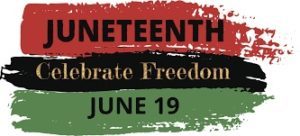
On a recent still night as I watched global protests on TV against the killing of Black people, my heart caught a scene that profoundly crushed me. It occurred over a few seconds and my guess is that it was not repeatedly publicized.
The killing of innocent and defenseless Black people is not new, it’s more public. In my elder body, I have seen worse, and so have my ancestors. With the flash cards of our news cycles, memories are short, and minds distracted. Some of you may have forgotten how blatantly racist the majority senate was when President Obama was in office, and how this continues with even more force, fury, and fear.
And you have to admit – and I know many of you are doing so loudly – that there is something about a White police officer lynching by knee a defenseless Black man who is using his last breath to call to his mama, that rips at the soul of Black people and reveals the soullessness of this nation. This public killing, so normalized, all on the hills of White vigilantes chasing down and killing an innocent and defenseless Black man while jogging. Every time I see a white person jogging, I scream inside: Why can’t my people be carefree? There is so much Black harm, so many Black killings, and so much grief. I write to you on Juneteenth, a date marked for when Black people annually celebrate the ending of chattel slavery, only to continue to witness modern-day expressions of violent and death.
Back to this video clip of the protesters that cracked me wide open – a scene I could have easily missed had I chosen to brush my teeth.
A Black man, maybe 24 – the age of my grandson – short, round body, dreadlocks, right hand gripping a baseball bat, walking with increasing intensity toward the window of a retail store. Then the most unexpected and amazing thing happened. Black protestors surrounded him, affirming him with hopeful chants, and encouraging him to join them in a peaceful protest. It took a few moments, but then he surrendered to their care. I sensed that perhaps his deeper wish had been met in that moment: to be seen, to have the weight of his rage shared, and to be cared for. Maybe he even glimpsed that while he could die that day, it would be with a softer heart.
Day to day I had been coping reasonably well, maintaining a steady mindfulness practice and open protest, supporting clients, community, and family back off their ledges. But in this moment – in this blink of an eye, this exhale, I was gutted in grief. What got me most was that I recognized myself in this young man – that part of me that feels insanely enraged, weary, and longing to call mama. And I recognized the power of being seen in my suffering, and to surrendering to care -- something I had denied needing.
I found myself sharing this experience with my Black Wisdom Circle last week only to realize that they were the peaceful protestors surrounding me in compassionate presence, witnessing my trembling voice, grimacing face, tight fists, and raw rage; holding my grief and sadness until it dissolved; without interruption, just care. Within a few moments, I felt release, more spacious, and reposed.
I touched a deeper longing that many Black people share: to be seen by each other, reassured, and surrounded in loving care – this, to me, is the healing meaning of Juneteenth! This we can only give to ourselves.
Join me in a six-week Black Wisdom Circle I am offering on Tuesdays, starting June 30 from 3-5pm ET. Visit Upcoming Events Tab to register!
The post Black Wisdom: A Reflection on Juneteenth appeared first on RuthKing.net.
June 10, 2020
Amazon Book Review – Mindful of Race #4
The death of George Floyd and countless other people of color in our country has left many of us feeling helpless, angry, and sad. Words matter, and I believe books are one step we can take to help educate ourselves, gain compassion, and enact change.
Check out the list of titles we recommend on this very important topic (and Mindful of Race is #4)! 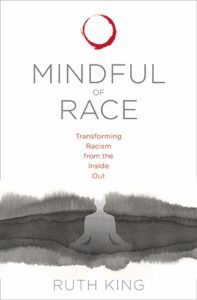
The post Amazon Book Review – Mindful of Race #4 appeared first on RuthKing.net.
May 29, 2020
The Untold
Excerpt from Mindful of Race: Transforming Racism from the Inside Out, Chapter 15: What White People can do with Privilege by Ruth King
Dear White People:
You must teach your children about racism, not from a distance, but from your own wise heart. Imagine telling your children (regardless of age) some version of the following story with such regularity that they remember and tell their children. And don’t just tell them this story, notice how such truth telling impacts you and your actions, then talk about that too:
My child, I’d like to tell you, from my lips, the truth about our racial history — about whiteness and about being a member of the white tribe. Years ago, our ancestors did a horrific deed against the human race. They owned black people as slaves and treated them with utter disrespect. Beatings, rape, torture, lynching, ongoing terror; we sold their children to the highest bidders and owned them as chattel. And we relied on them to grow our food and take care of our children — your ancestors. Yes, our people did this — white people. Not only did we do this to blacks; we also did hateful things to people who we felt were substandard, like Indigenous Indians, Mexicans, Jews, Japanese, Chinese, and poorer people than we were.
It’s true that the greatness of this country, to a large extent, is due to the slave labor of blacks, and we owe them a huge debt. We have, as a white race, disenfranchised them and systematically organized to keep them from participating in and benefiting from the wealthiest country in the world. Our success, however big or small, and the many privileges we enjoy as a family are rooted in this stained and denied history. Even to this day, our people benefit from the institutional practices that intentionally and systematically oppress black and other dark bodies. Many poor white people feel that they are better than black people — even better than the first black president of the United States.
Being ashamed about this is not as helpful as understanding that we have a lot of work to do to begin to respect blacks and dark lives, to release and share the wealth and privileges we have for all they have given to us as white people.
Blacks and other POC are rightfully angry toward us because of the centuries of hatred and disrespect we have shown them. We have continued as a collective to build prisons to hide and erase them, instead of facing the years of hatred toward them and shame toward ourselves that have resulted in destroyed hearts, minds, and communities. Most important, we have died inside as a result of making hatred normal as a white race. We have become numb, dismembered, crude, and unloving toward our own race, because we cannot access the depth of love as a collective with such a stained and unfinished and unhealed history of disrespect and hatred toward others, especially black people.
What this means to you and me is that we must wake up to this history and own that we walk with great ease in this country on their still sore backs — backs we whipped into submission. What we witness today in the black collective expression is the result of generations of blacks who have witnessed their parents and grandparents killed, lynched, raped by our men, and hated and disrespected by us. They were helpless against it — we made sure of that.
You need to understand, my child, that while we have other fears, we tend to walk without racial fear, and they don’t. This world is not safe for them and other people like them — dark people — and it is because of our history, our whiteness; our supremacy. To this day we have better schools and access, and we still are the central race in all aspects of respectable society, work, and leadership. Black communities are largely poor, and their schools are disenfranchised because we have kept them at a disadvantage. Many blacks are considered criminals, even though they are not doing anything more than we do in our communities. Yet they are imprisoned and used again as slave labor.
Many whites want to maintain white supremacy, and there continues to be white nationalist rallies and terror attacks on other races near and far, currently emboldened by senior members of the White House.
We have done horrible things as a white race, unspeakable things, yet we have not spoken or been honest with each other or ourselves as a white race. While you and I may not have done these things personally, this is our history and our inheritance.
Our challenge is to do everything humanly possible to recognize and interrupt any act of disrespect and unearned privilege and to use our voices, our bodies, and our hearts to make this wrong right. We need this in order to be free. This does not mean kissing up to blacks or anyone else, although it may seem that way. Rather it means a willingness to face into the pain they carry because we’ve been so cavalier, numb, and blind to the role we have played in the past and present horrors of their lives.
Our job now and for a long time is to own up to it, apologize, and recognize that their expressed pain is not directed to you or me as an individual but to us as a white race and as the institutional power that continues to oppress them, often through our ignorance, greed, comfort, righteousness, and indifference.
I tell you this because you may well receive much disdain from black people. When they see you, they are also seeing our unclaimed and terrorizing history; they see you as someone who, like our forefathers, hated them, and they see our ignorance, the way we casually delight in a disowned and forgotten history — a history where we considered them as less than human, as possessions, as chattel. This history wasn’t that long ago. They are and should be hurt and angry by our utter neglect and generational hatred.
There is much to be done. There is no time for guilt and shame. We must forgive ourselves and correct this wrong. We must become advocates for all of humanity, especially black and dark-skinned bodies. Enough said for now, but we will speak of this again and again and again.
As a white person, what comes up for you as you consider telling your child — or any white person — such a story? If you are feeling uneasy or queasy or have an aversion to verbalizing such a story, you might ask yourself why. What beliefs or emotions get in the way? If “The Untold” feels too far-fetched, what message or stories feel closer to you? Consider personalizing a story that reflects the truth of your individual experience as a racial being acknowledging your membership in whiteness.
When you, as a white person, collude in silence, sameness, and blindness of the truth of racial harm and injustice, you maintain privilege by avoiding the intense heat and creative chaos that is required to compost racial avoidance into racial awareness, honesty, and accountability. Not being willing to speak openly about racial truths, in your own words, is one way white supremacy is upheld and privilege is maintained. With such collusion, Black, Indigenous, and People of Color must carry the wait of pointing out the obvious and the unspoken to white people, while also being the target of blame.
White people, you can begin to break this cycle by talking to those closest to you - your loved ones. Come out of hiding. Share the weight of injustice. Dare to live full bodied and intimately members in humanity.
© All rights reserved.
The post The Untold appeared first on RuthKing.net.
Ruth King's Blog
- Ruth King's profile
- 53 followers


